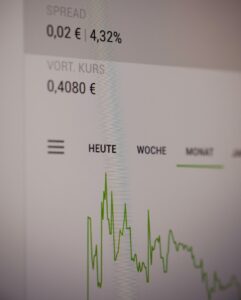The Impact of Market Volatility on Forex Slippage: A Comprehensive Analysis
Forex trading is a highly dynamic and fast-paced market, where currencies are bought and sold based on their value relative to one another. One of the key factors that can significantly impact forex trading is market volatility. Market volatility refers to the frequency and magnitude of price fluctuations in a financial market. In the forex market, volatility can have a direct impact on a phenomenon known as slippage. In this article, we will provide a comprehensive analysis of the impact of market volatility on forex slippage.
What is Slippage?
Slippage is a common occurrence in forex trading and refers to the difference between the expected price of a trade and the actual price at which the trade is executed. In other words, it is the discrepancy between the price a trader wants to enter or exit a trade and the price at which the trade is actually executed. Slippage can occur in both directions, either positive (favorable) or negative (unfavorable).
Causes of Slippage
Slippage can occur due to various factors, including market volatility, liquidity, and execution speed. However, market volatility is often considered one of the primary causes of slippage. When the market experiences high volatility, prices can change rapidly, making it difficult for traders to execute trades at the desired price. This can lead to slippage, as the actual execution price may differ from the expected price due to the fast-moving market.
Impact of Market Volatility on Slippage
High market volatility can have a significant impact on slippage. During periods of low volatility, where price movements are relatively stable and predictable, slippage is generally minimal. However, when market volatility increases, slippage becomes more prevalent.
One of the main reasons for increased slippage during high market volatility is the widening of bid-ask spreads. The bid-ask spread is the difference between the price at which a buyer is willing to buy a currency pair (bid price) and the price at which a seller is willing to sell (ask price). During periods of high volatility, market participants become more cautious, and liquidity providers widen their spreads to compensate for the increased risk. This widening of spreads can result in higher slippage for traders, as they are forced to buy at higher prices and sell at lower prices.
Moreover, high market volatility can also lead to price gaps, which can further contribute to slippage. A price gap occurs when there is a significant difference between the closing price of one trading session and the opening price of the next session. These gaps can occur overnight, during news releases, or during periods of high market volatility. When a price gap occurs, traders may experience slippage as their orders are executed at the next available price, which can be significantly different from the expected price.
Mitigating Slippage During High Market Volatility
While slippage during periods of high market volatility is difficult to avoid entirely, there are a few strategies that traders can employ to mitigate its impact.
1. Utilize Limit Orders: Limit orders allow traders to specify the maximum price they are willing to buy or the minimum price they are willing to sell. By using limit orders, traders can avoid buying at higher prices or selling at lower prices during periods of high market volatility.
2. Use Stop Loss Orders: Stop loss orders are designed to limit potential losses by automatically closing a trade at a predetermined price level. By setting a stop loss order, traders can protect themselves from excessive slippage in the event of a sudden market move.
3. Trade During Less Volatile Times: While forex markets are open 24 hours a day, there are times when market volatility is lower. Trading during these periods can help reduce the likelihood of significant slippage.
4. Choose a Reliable Broker: The choice of a forex broker can also impact slippage. Traders should opt for reputable brokers with strong liquidity providers and fast execution speeds to minimize the chances of slippage, especially during high market volatility.
In conclusion, market volatility plays a crucial role in determining the extent of slippage in forex trading. High market volatility can lead to increased slippage, primarily due to wider bid-ask spreads and price gaps. However, traders can mitigate the impact of slippage by utilizing limit orders, stop loss orders, trading during less volatile times, and choosing a reliable broker. Understanding the relationship between market volatility and slippage is essential for forex traders to effectively manage their trades and minimize potential losses.






